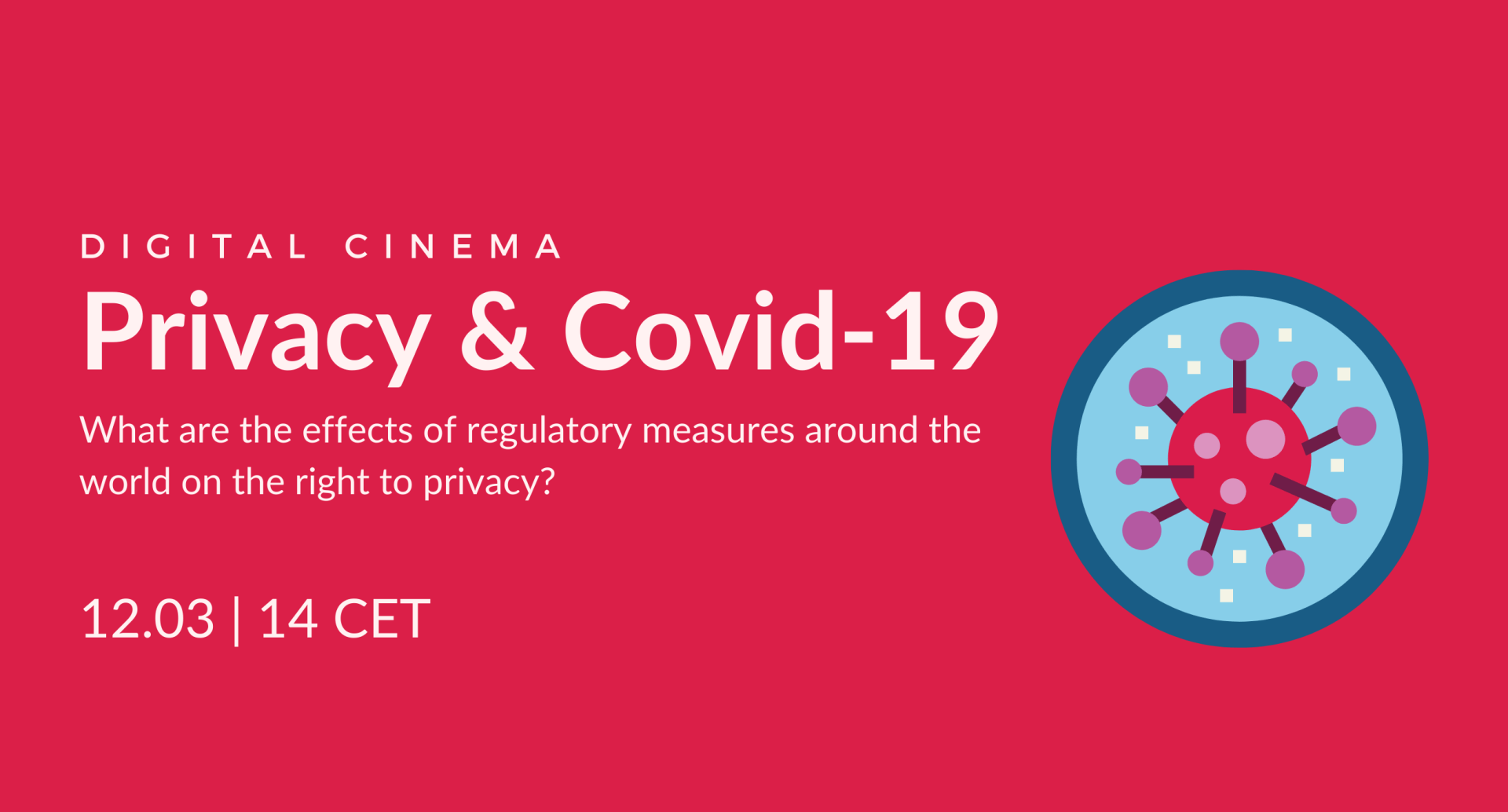ABOUT
Governments are taking unprecedented steps to track, trace, contain and mitigate the spread of Covid-19 by resorting to digital technologies and advanced analytics to collect, analyse and share data for front-line responses. Data is essential for efficiently tackling the pandemic and forecasting the spread of the virus, to assess the resources of health care systems and to evaluate the efficacy of policies restricting the movement of individuals. While contact-tracing technologies can be useful to limit the spread of the virus, if left unchecked, they can also be misused for extensive collection and sharing of personal data, mass surveillance, limiting individual freedoms and challenging democratic governance. Transparency and effective communication are not solely dictated by data protection objectives. They are crucial for establishing public trust in the emergency measures taken and a broad compliance hereto as a requisite for effective democratic governance. Join us for a discussion with young experts sharing their
insights from their respective jurisdictions about the effects of regulatory measures on the right to privacy.
SPEAKERS
Dr. jur. Ma. Angela Leonor Aguinaldo, J.D., LL.M. is an Attorney at Law; specializes also in EU and ASEAN affairs, Criminology, International (Criminal) Law, international cooperation in criminal matters, and online evidence. She was a member of the Max Planck Institute for the Study of Crime, Security and Law and the International Max Planck School for Comparative Criminal Law when she finished her Ph.D. degree from the Albert-Ludwigs-Universität Freiburg with magna cum laude honors.
Daniel Becker is partner at Lima ≡ Feigelson Advogados and Director of New Technologies at the Brazilian Center for Mediation and Arbitration (CBMA). Dispute resolution attorney focusing on contractual disputes from regulated sectors. Invited professor at several institutions, frequent speaker and author of several articles published in national and international books and magazines on the topics of arbitration, civil procedure, regulation and technology. Organizer of the books “Tomorrow Lawyer”, “Regulation 4.0, vol. I and II”, "Litigation 4.0" and “Comments on the Brazilian Data Protection Law”, all of them published in Portuguese by Thomson Reuters.
Merel van Gils works as a human rights lawyer for 'Climate Justice through the Courts'. She has participated at International Humanitarian Law Clinic of the Kalshoven-Gieskes Forum on International Humanitarian Law. She holds a B.A. in law from Leiden University and a M.A. in criminal law and public international law from the University of Amsterdam and Leiden University, respectively.
Alina Škiljić, CIPP/E, is a Croatian lawyer primarily focused on data protection and privacy law, corporate law and technology transactions. She graduated from the University of Zagreb and is currently working as a third-year associate in the Zagreb office of the global law firm. She is an active member of the International Association of Privacy Professionals and is currently serving a one-year Young Privacy Professional - volunteer mandate in Croatia. She has been published several times in international law journals and has previously interned in the European Parliament and participated in projects of the European Court of Human Rights.
Vinitika Vij is a lecturer at Jindal Global Law School secured her B.A. LL.B. (Hons.) from Jindal Global Law School in 2018. She acquired her LL.M. in International Law from the University of Cambridge in 2019. Her area of interest is public international law, mainly international trade law, IP law, investment law, international environmental law and international criminal law. Her research areas focus on the various linkages between these fields. Her previous publications have explored contemporary issues in public international law, especially international trade law. She has also been associated with the Geneva-Georgetown Trade Lab.
SHARE
Read More


Watch Our Episodes





